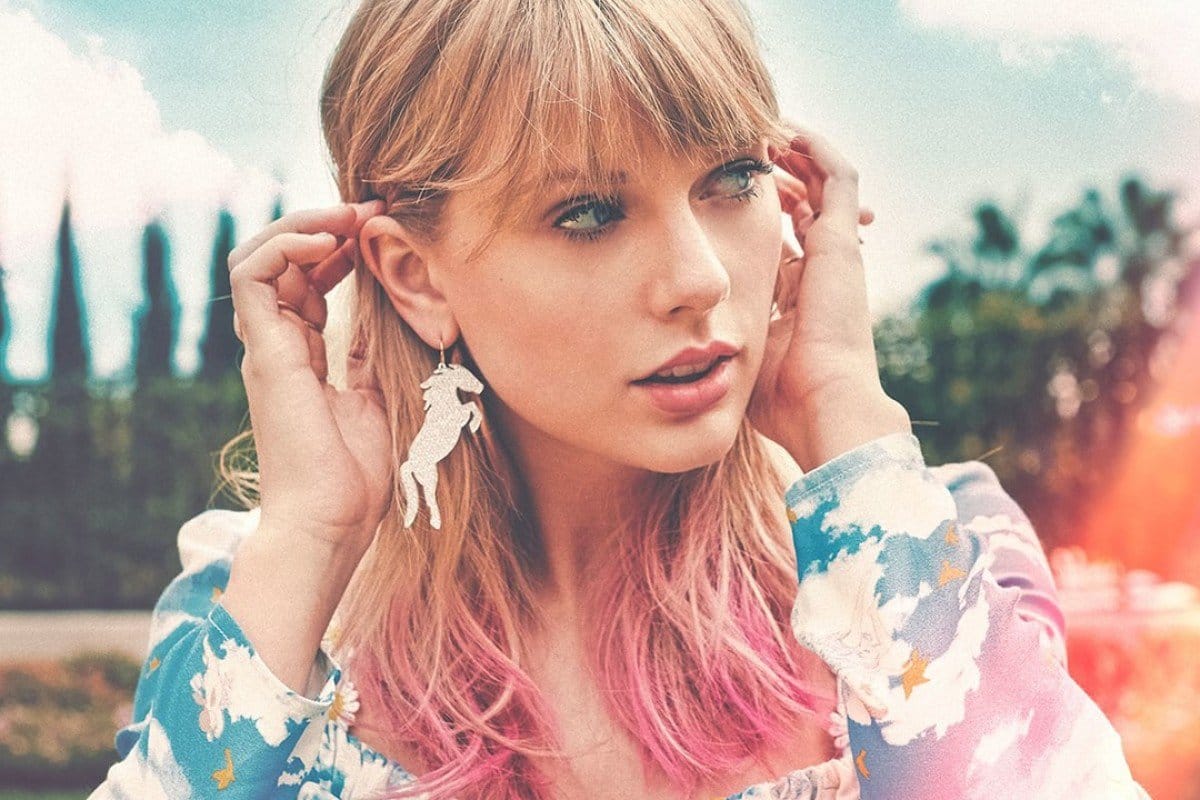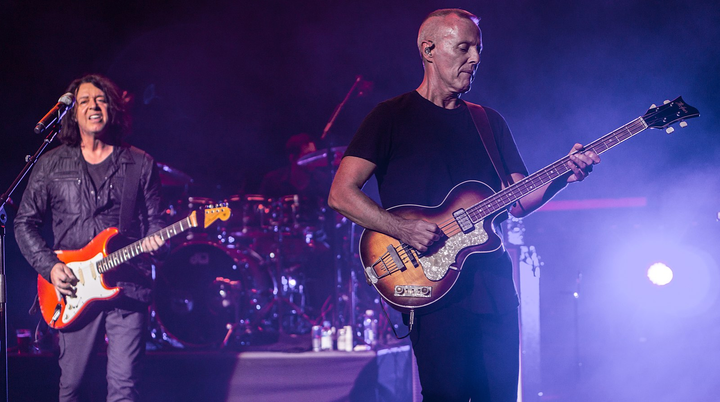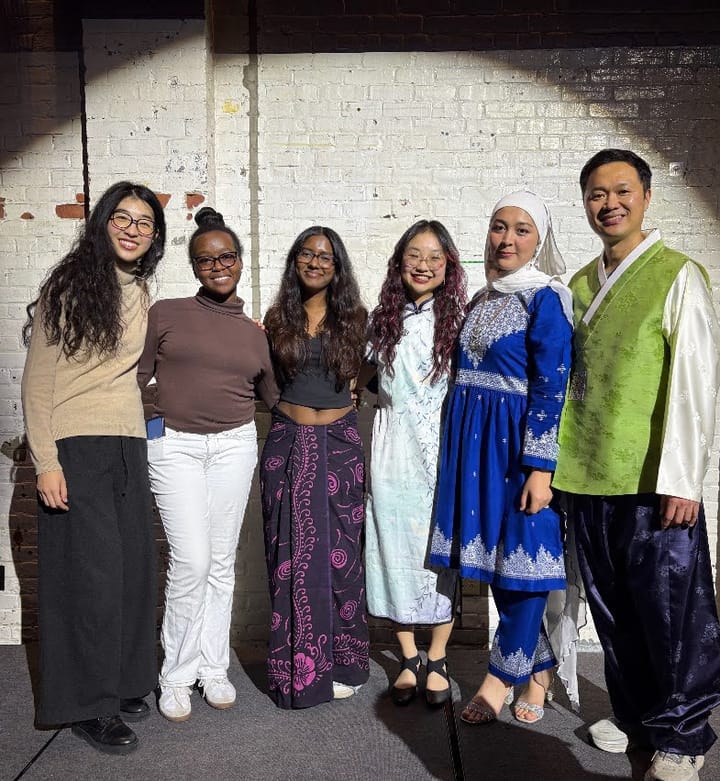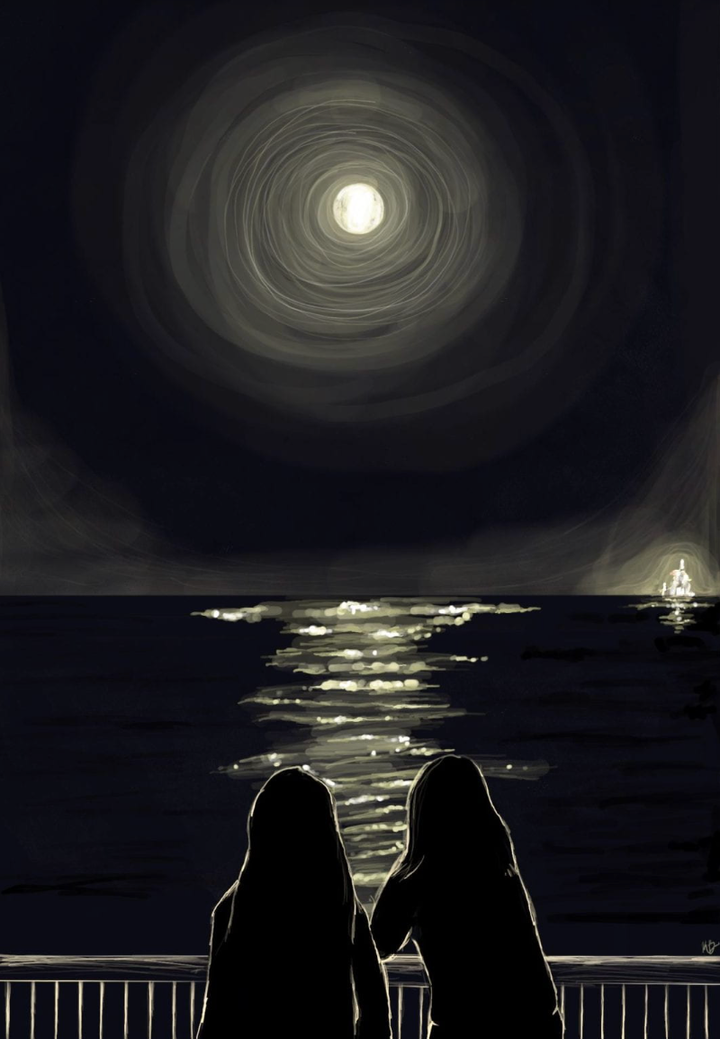How My Taylor Swift Love Affair Continues On “Lover”

Watching Taylor Swift on “Saturday Night Live” this past weekend felt off in a way that’s difficult to put into words. What is Taylor Swift doing singing onstage with a saxophone? Why does she perform with such uncomfortably imposed swagger? It all seemed out of place and out of character, as Swift stood with hazy smoke around her ankles and sat in kelly-green at the piano.
But it’s not the setting that seemed strange — there is no question of the abundance of flashy performance today. I could easily imagine nearly any other artist standing on stage like that, awkwardly dancing or trendily dressed; it was simply seeing Swift in that setting that seemed wrong and a far cry from her first appearance on the show, in 2009, when she stood and performed with her guitar. Over those 10 years, it’s natural to expect change, but somehow our perception of Swift as an artist struggles to evolve with her. How do we come to terms with a musician’s drastic evolution over time before our eyes?
For me, Taylor Swift — at her best — is the deep, thoughtful music of fall. Her songs are the anthems I would listen to on my way home from summer camp, going back to school bopping my head to the pop-y beats of “Our Song” and “Teardrops on My Guitar” through the headphones attached to my tiny MP3-player in third grade. When I moved to a new school and a new house, I listened to “Fearless” that November on repeat off the giant stereo I now kept in my new room. “Blank Space” was the soundtrack of Thanksgiving 2014, as my sister and I played the song on constant loop, learning every word. The lyrics of “Reputation” are what I latched onto as a new first-year at Amherst, trying to figure out what it meant to break up with your high school boyfriend and be cast into this lonely new environment.
With each chapter of my life, there has been a Taylor Swift album to accompany it (all of her albums, excluding the most recent, were released in October or November). And so, despite its late August release, I’ve found these past few days of early October to be the ones during which I’ve allowed myself to dive deeper into Swift’s latest album, “Lover.”
At this point, the album is far from new; it has been over a month since its release, and it has already been whisked out of the top charts. But it’s not the catered, ready-made hits off the album that keep me listening to it. What I love, and have always loved, about Taylor Swift is the keen, poetic detail and observation she brings to her music. It’s the picture she paints in her songs, with the words “our song is a slamming screen door / Sneaking out late tapping on your window / When we’re on the phone and you talk real slow / ‘Cause it’s late and your mama don’t know,” that filled 7-year-old me with imagination and a vivid picture of what life might be like in high school. It’s the same eye that builds the image in “New Year’s Day” of “glitter on the floor after the party / Girls carrying their shoes down in the lobby / Candle wax and Polaroids on the hardwood floor.” When she does it well, Swift can craft poetic lyrics that show a deep appreciation for the beauty of the small things that build up the world around us.
It’s not to say that Swift is alone in doing this. It’s the same reason I love the music of Lizzo and Hozier, Maggie Rogers and Anderson.Paak, Børns and Kanye (though, yes I know as a political figure he is polarizing). But Swift is one of the rare artists who is able to combine these artful, vivid lines into a pop package. Her pop peers are nowhere in her league when it comes to taking this artistic appreciation for words into the fluffy pop-sphere.
Notably, it’s where she tries to really keep up with the tone and style of other current pop artists — on her album singles — that she falls apart. “You Need to Calm Down” and “ME!” truly suck and are obvious grabs for attention and radio air time (the cheeky “Hey kids! spelling is fun!” will forever haunt listeners).
It’s the underexplored songs on the album that are not over-produced and over-written in which we see Swift do what she does, and has always done, best: writing tight lines of sharp, observant wordplay.
“Lover” offers a glimpse into how Swift is learning to balance the identity she’s come into as a popstar with the one she’s always had as a songwriter. There are still sure misses, like “Archer” and “Daylight” (as so much of “Reputation” was) where she leans in too far to embody the pop star, but we see her adjusting to what it means for her to live in that role (while being genuine to herself and her style) more and more.
“Cruel Summer” is an emotional sucker punch to the stomach because it strikes this balance between pop star and songwriter so well. Swift is still Swift in it, even with the heavy bass and electronic echoing voices in the back.
She sings “I’m drunk in the back of the car / And I cried like a baby coming home from the bar / Said ‘I’m fine’ but it wasn’t true,” painting the same scenes that she did so well on her 2006 debut album “Taylor Swift.” Yet she simultaneously sings “I don’t wanna keep secrets just to keep you” and raspily shouts “I love you, ain’t that the worst thing you ever heard?”, pulling the song into line with the sound expected from an artist in 2019.
The combination creates a song and a sentiment so raw and emotional, in a way that Swift has not achieved in years. “Soon You’ll Get Better,” a Dixie Chicks collab which could easily be on “Fearless” or “Taylor Swift,” is the most flagrant return to old Taylor.
On the track about her mother’s fight with cancer, Swift sings “The buttons of my coat were tangled in my hair / In doctor’s office lighting, I didn’t tell you I was scared” and illustrates the heart wrenching scene of fumbling with shaking hands upon hearing the worst.
The song peaks with the line “And I hate to make this all about me / But who am I supposed to talk to? / What am I supposed to do / If there’s no you?” It’s impossible to hear her words and not feel some deep pang of sympathy, not just for Swift, but also for ourselves, as she pinpoints exactly what is so scary about losing someone. It’s so real, honest and raw.
She continues her emotional openness in her eponymous track “Lover,” which seems like the narrative sequel to “Reputation’s” “New Year’s Day,” as she sings “We can keep the Christmas lights up ‘til January / It’s our house, we make the rules.” In the same attentive way, she crafts an image of the tiny and subtle ins and outs of a relationship, which she matches with grand sweeping proclamations of love.
She sings a mock wedding vow: “Ladies and gentlemen, will you please stand? … / I take this magnetic force of a man to be my lover / My heart’s been borrowed and yours has been blue” — with the intimate sweetest details of a relationship — “and you’ll save all your dirtiest jokes for me / And at every table, I’ll save you a seat.” Behind the atrocities of “ME!” and “You Need to Calm Down,” Swift is returning to honesty on her most recent album. Looking at the album as a whole, she returns not only thematically to songs and stories of her past, but also stylistically, as she re-embraces what makes her shine as an artist: astute observations wrapped cleverly into lyrics. She’s not fully there yet, but perhaps this is what makes the album so worthwhile to listen to. We get to chart her growth ebbing and flowing over seven albums. I’ve grown up alongside Taylor Swift, watching her struggle to define herself and her image as I have grown and grappled to do the same; Taylor Swift is constantly reinventing herself, and so am I.





Comments ()